Recent Blog Posts
Can You Get Your License Back After Losing It for a DWI?
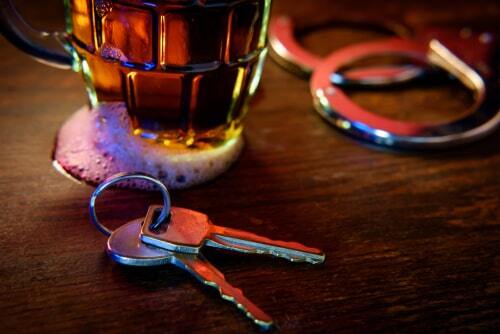
Having your driver’s license suspended after a DWI charge can greatly disrupt your life. It can take a toll, especially when you have to travel to work, school, or other important places. Many wonder if and when they may be able to restore their driving privileges in Texas after an alcohol-related administrative license revocation. You have a right to know about reinstating your license, even if you have a DWI charge. A Texas lawyer can help you understand your rights.
Mandatory License Suspension Periods
The Texas Department of Public Safety will automatically suspend the license of any driver who:
- Refuses a breathalyzer test after being lawfully stopped for DWI. The suspension is 180 days
- Fails a breath or blood test with a blood alcohol concentration of 0.08% or higher. The suspension is 90 days if this is your first offense
How a Lawyer Can Help You Face Your DWI Charge in Texas
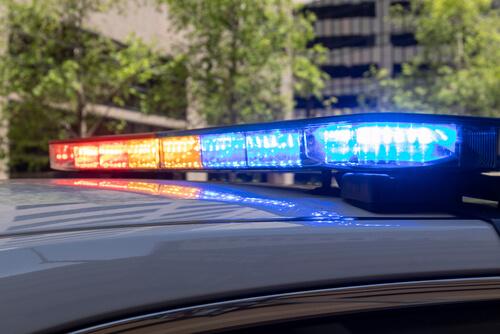
Being arrested for DWI in Texas is scary. A DWI conviction can disrupt your life with jail time, license suspension, fines, and a criminal record. Working with a Texas lawyer is the best way to navigate the charges and achieve the most favorable outcome. Here is how a lawyer can help you face your DWI charge in Texas:
Reviewing the Evidence
After an arrest, an attorney will order evidence like the police report, breath or blood test results, and dash and body cam footage. Thoroughly examining the evidence is key to building a strong defense, attacking any weak points or procedural mistakes by officers.
Assessing the Charges
Texas has related DWI charges ranging from misdemeanor DWI to felony DWI 3rd, DWI with child passenger, DWI with serious bodily injury or death, or other similar charges. An attorney will analyze the specifics of your charges and any enhancements to advise on potential penalties and defensive strategies. They can easily spot a gap and see if it could benefit your case.
Understanding DWI Probation and Suspended Sentences in Texas
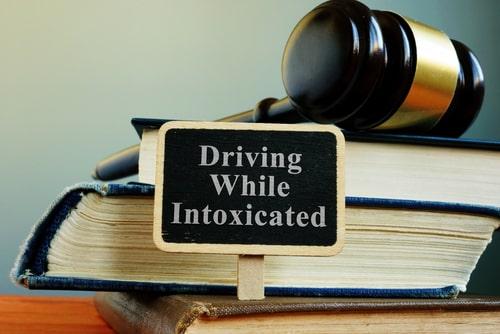 Judges often order probation or suspended sentences for first-time DWI offenses in Texas rather than jail time. However, these alternatives come with strict conditions. A Texas lawyer can help you gain clarity and avoid pitfalls.
Judges often order probation or suspended sentences for first-time DWI offenses in Texas rather than jail time. However, these alternatives come with strict conditions. A Texas lawyer can help you gain clarity and avoid pitfalls.
What to Know About DWI Probation Requirements
Instead of jail, Texas courts may grant DWI probation, allowing you to serve your sentence supervised within the community. Probation terms typically include:
- Mandatory substance abuse counseling.
- Community service.
- Installing an ignition interlock device.
- Paying fines and costs.
- Meeting a probation officer routinely.
- Undergoing regular alcohol testing.
You must comply fully with all probation requirements for its entire duration. Otherwise, your probation could get revoked, meaning incarceration. Having an experienced DWI lawyer advise your probation strategy is crucial. They can help craft your probation plan, assist with conditions like interlock installation and alcohol testing, and intervene if any violations get alleged.
How to Protect Your Rights After a DUI Arrest in Texas
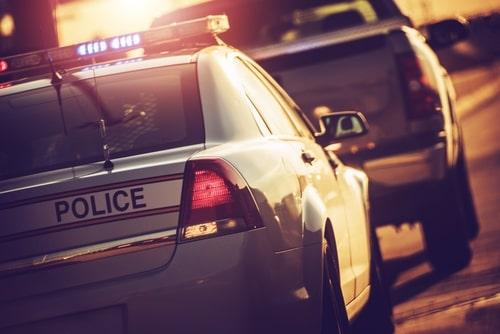 Being arrested for DUI charges in Texas can lead to a complex legal process with severe, life-altering consequences that go far beyond the night spent in jail. That is why understanding exactly how to respond after a DUI arrest is absolutely critical to protecting your legal rights and minimizing the penalties you may face with a Texas lawyer.
Being arrested for DUI charges in Texas can lead to a complex legal process with severe, life-altering consequences that go far beyond the night spent in jail. That is why understanding exactly how to respond after a DUI arrest is absolutely critical to protecting your legal rights and minimizing the penalties you may face with a Texas lawyer.
Be Cooperative but Selectively Silent
Beyond providing your driver’s license and basic identifying information as required, it is wise to decline to engage in any questioning or interrogations politely yet firmly. You should not have any discussions after your DUI arrest until you have a lawyer present with you. Anything you say to officers on the scene, on camera at the station, or on recorded police interviews can and will be used as statements against your interests later in court. Wait until your lawyer is present before providing accounts of what occurred.
How Serious Are Federal Gun Crime Charges?
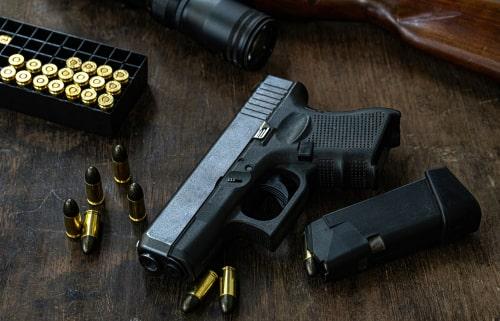 Gun crimes are a significant concern in the United States, prompting discussions about the jurisdiction and enforcement of firearms-related offenses. While many gun crimes are prosecuted at the state level, federal law also plays a crucial role in addressing and prosecuting federal gun crimes. If you are facing federal gun charges, your freedom may be at stake, as a federal gun crime conviction can lead to devastating personal and professional consequences. Contact a lawyer with experience in defending clients against federal gun charges. While a positive outcome cannot be guaranteed, hiring a lawyer is your best chance at obtaining a favorable case outcome.
Gun crimes are a significant concern in the United States, prompting discussions about the jurisdiction and enforcement of firearms-related offenses. While many gun crimes are prosecuted at the state level, federal law also plays a crucial role in addressing and prosecuting federal gun crimes. If you are facing federal gun charges, your freedom may be at stake, as a federal gun crime conviction can lead to devastating personal and professional consequences. Contact a lawyer with experience in defending clients against federal gun charges. While a positive outcome cannot be guaranteed, hiring a lawyer is your best chance at obtaining a favorable case outcome.
Federal Firearm Laws
The United States criminal code features several federal laws regulating firearms and their possession, sale, and use. These laws are designated to complement existing Texas laws and address specific issues that extend beyond state boundaries, making federal involvement necessary.
What is an Accessory After the Fact in Criminal Law?
 The criminal justice system holds individuals accountable for committing crimes, and their involvement after a crime has been committed. One such role is that of an accessory after the fact. If you have been charged as an accessory after the fact, you need to strongly consider hiring a criminal defense lawyer to ensure your rights are protected.
The criminal justice system holds individuals accountable for committing crimes, and their involvement after a crime has been committed. One such role is that of an accessory after the fact. If you have been charged as an accessory after the fact, you need to strongly consider hiring a criminal defense lawyer to ensure your rights are protected.
Definition of an Accessory After the Fact
In Texas law, an accessory after the fact is an individual who, after a crime has been committed, assists or harbors the perpetrator with the intent to prevent their identification, capture, or prosecution. This assistance can take various forms, such as providing the perpetrator shelter, transportation, or financial aid.
Legal Implications
The role of an accessory after the fact is considered a separate offense from the primary crime committed. While the primary offender is charged with the actual crime, the accessory after the fact, is charged for their assistance or involvement after the crime has taken place. This distinction allows the legal system to hold individuals accountable for their actions in obstructing justice.
What is Asset Forfeiture?
 Asset forfeiture is a legal process that allows law enforcement agencies to seize, and potentially forfeit assets tied to criminal activity. This tool is used to disrupt and combat organized crime, drug trafficking, money laundering, and other illicit activities. Today, we will look at the concept of asset forfeiture in criminal cases, exploring its rationale, procedure, and potential impact on the individuals involved. If you are facing criminal charges and fear your assets may be seized or forfeited, contact a San Antonio area criminal defense lawyer to get the legal help you need.
Asset forfeiture is a legal process that allows law enforcement agencies to seize, and potentially forfeit assets tied to criminal activity. This tool is used to disrupt and combat organized crime, drug trafficking, money laundering, and other illicit activities. Today, we will look at the concept of asset forfeiture in criminal cases, exploring its rationale, procedure, and potential impact on the individuals involved. If you are facing criminal charges and fear your assets may be seized or forfeited, contact a San Antonio area criminal defense lawyer to get the legal help you need.
Rationale Behind Asset Forfeiture
Asset forfeiture serves two primary purposes:
- Disrupting criminal enterprises – By seizing assets connected to criminal activity, law enforcement aims to disrupt the financial structure of organized crime networks. Stripping criminals of their ill-gotten gains hampers their ability to perpetuate criminal enterprises.
Understanding Compassionate Release for Federal Prisoners in Texas
 Compassionate release is a program in Texas that allows federal prisoners to be released from prison before completing their full sentence. Today, we will explain the basis of compassionate release and what you need to know about the program. If you have a loved one you believe may qualify for compassionate release, contact a federal criminal defense lawyer to begin the process of pursuing the release of your loved one.
Compassionate release is a program in Texas that allows federal prisoners to be released from prison before completing their full sentence. Today, we will explain the basis of compassionate release and what you need to know about the program. If you have a loved one you believe may qualify for compassionate release, contact a federal criminal defense lawyer to begin the process of pursuing the release of your loved one.
What is Compassionate Release?
Compassionate release, also known as early release, is a program that allows eligible federal prisoners in Texas to leave prison before their sentence ends. This is intended to help prisoners dealing with exceptional and unexpected circumstances.
Who is Eligible for Compassionate Release?
To be eligible for compassionate release, federal prisoners in Texas must show that an extraordinary circumstance has arisen, such as terminal illness, significant health problems, inmates of advanced age who have served the majority of their sentence, or unforeseen family-related issues that require the federal inmate to leave prison to care for an incapacitated family member.
Penalties for Smuggling a Minor from Mexico Conviction
 Being charged with smuggling a minor into Texas from Mexico is a serious criminal offense that carries significant legal consequences. The severity of the punishment depends on various factors, including the specific circumstances surrounding the case, the defendant’s criminal history, and the judge’s discretion. Today, we will provide general information about the potential legal consequences of this offense and suggest that anyone charged with such an offense must absolutely retain legal counsel to ensure their rights are protected.
Being charged with smuggling a minor into Texas from Mexico is a serious criminal offense that carries significant legal consequences. The severity of the punishment depends on various factors, including the specific circumstances surrounding the case, the defendant’s criminal history, and the judge’s discretion. Today, we will provide general information about the potential legal consequences of this offense and suggest that anyone charged with such an offense must absolutely retain legal counsel to ensure their rights are protected.
The Legal Consequences of Smuggling a Minor into Texas
Here is what you need to know about these grim charges, including:
- Federal vs. state charges – Smuggling a minor across the border can lead to criminal charges at both the federal and state levels. Federal alien smuggling charges typically carry more severe penalties, while state charges may result in lesser penalties. It is also not uncommon for individuals to be slapped with both state and federal charges in human smuggling cases.
What Does it Mean to Face Federal Criminal Charges?
 Facing federal criminal charges can be a very overwhelming and intimidating experience for anyone involved in the legal system. These charges differ significantly from state-level or local offenses due to the jurisdiction and the severity of the consequences involved. Today, we will explore what it actually means to face federal criminal charges – from the initial investigation to potential outcomes – providing you with a comprehensive overview. For legal assistance in this very serious matter, contact a criminal defense attorney to protect yourself legally against the very serious charges you now face.
Facing federal criminal charges can be a very overwhelming and intimidating experience for anyone involved in the legal system. These charges differ significantly from state-level or local offenses due to the jurisdiction and the severity of the consequences involved. Today, we will explore what it actually means to face federal criminal charges – from the initial investigation to potential outcomes – providing you with a comprehensive overview. For legal assistance in this very serious matter, contact a criminal defense attorney to protect yourself legally against the very serious charges you now face.
Understanding Federal Law Jurisdiction
The first crucial aspect to understand is that federal crimes are those that violate U.S. federal laws. They cover a wide range of offenses, such as drug trafficking, immigration violations, white-collar crimes, organized crime, terrorism, and more. The engaging factor in these cases is that federal agencies, such as the Federal Bureau of Investigation (FBI) or the Drug Enforcement Administration (DEA), often handle federal investigations and are the ones who ultimately bring charges.





